
Description
The World of Aromatherapy’s Myrrh Essential Oil
🌾 Immerse yourself in the ancient allure of our Myrrh Essential Oil, an aromatic treasure that has whispered through the annals of time.
🐫 Drawing its essence from the resin of desert-bound trees, this oil unfolds a tapestry of warm, spicy, and slightly balsamic notes.
💆♀️ Cherished in the aromatic archives, Myrrh is a balm for the soul. Its profound fragrance grounds emotions, nurtures spiritual reflection, and envelopes the senses in a comforting embrace.
🌍 With our promise of sustainability, each drop captures not just the age-old mystique of Myrrh, but also our dedication to conserving its ancient legacy.
🌟 Embark on a timeless journey with our Myrrh Essential Oil, where each inhalation is a step into history, serenity, and depth.
Latin Name : Commiphora Myrrha
Part Of Plaant Used : Resin
Source : Somalia
Extraction Method : Steam Distillation
Myrrh has been used since ancient times as perfume and incense for medicinal and sacred purposes. Myrrh Essential Oil is a staple in aromatherapy and is believed to ease coughs and colds, soothe digestive discomfort, and boost immunity.
When used in aromatherapy, myrrh is said to help treat or prevent the following health problems as colds, cough, insomnia or sore throat.
In addition, myrrh essential oil is said to reduce inflammation, stimulate the immune system, alleviate pain, and promote wound healing.
Sometimes used as an ingredient in skincare products, myrrh essential oil is also purported to reduce the appearance of wrinkles.
Additional information
| Weight | 0.04 kg |
|---|---|
| Size | 10ml, 50ml, 500ml |
You must be logged in to post a review.
Related Products
Related products
-
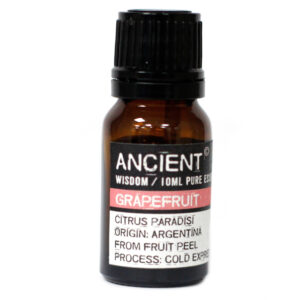
Grapefruit Essential Oil
£4.55 – £89.00Price range: £4.55 through £89.00 Select options This product has multiple variants. The options may be chosen on the product page -
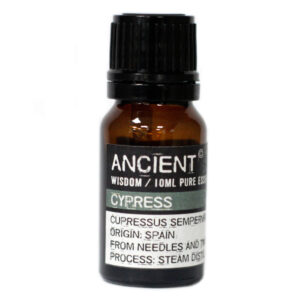
Cypress Essential Oil
£4.95 – £99.00Price range: £4.95 through £99.00 Select options This product has multiple variants. The options may be chosen on the product page -
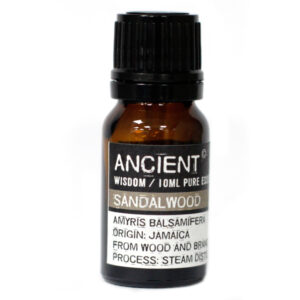
Sandalwood Amyris Essential Oil
£7.50 – £195.00Price range: £7.50 through £195.00 Select options This product has multiple variants. The options may be chosen on the product page -
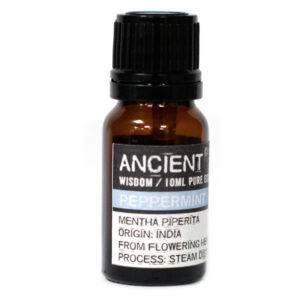
Peppermint Essential Oil
£4.50 – £69.95Price range: £4.50 through £69.95 Select options This product has multiple variants. The options may be chosen on the product page
Myrrh Essential Oil from The World of Aromatherapy: Benefits and Uses
Myrrh essential oil has been used for centuries in the world of aromatherapy. This essential oil is derived from the sap of a thorny tree, Commiphora myrrha, which is native to northeastern Africa and southwest Asia. Myrrh essential oil has a warm, earthy, and slightly bitter scent that is commonly used in aromatherapy for its therapeutic properties.
Myrrh essential oil has been used in traditional medicine for thousands of years, and it is believed to have antibacterial, antifungal, and anti-inflammatory properties. In aromatherapy, myrrh essential oil is used to promote relaxation, reduce stress and anxiety, and improve mood. It is also believed to have a positive effect on the respiratory system, helping to relieve coughs and congestion.
Key Takeaways
- Myrrh essential oil is derived from the sap of a thorny tree, and has a warm, earthy, and slightly bitter scent.
- Myrrh essential oil has been used in traditional medicine for thousands of years, and is believed to have antibacterial, antifungal, and anti-inflammatory properties.
- In aromatherapy, myrrh essential oil is used to promote relaxation, reduce stress and anxiety, and improve mood.
History and Origin of Myrrh Essential Oil
Myrrh essential oil has a long and rich history dating back centuries. It is derived from the resin of myrrh trees, which are native to Somalia, Oman, Yemen, Eritrea, the Somali Region of Ethiopia, and parts of Saudi Arabia.
The use of myrrh resin and sap can be traced back to ancient cultures, including the Egyptians, Greeks, and Romans. In ancient Egypt, myrrh was used in the embalming process of mummies, as well as in cosmetics, perfumes, and medicines. The Greeks and Romans also used myrrh in their religious ceremonies and as medicine for a variety of ailments.
Myrrh was highly valued in ancient times, and it was often used as a gift or offering to royalty and religious leaders. It was also used in trade and was considered a valuable commodity.
Today, myrrh essential oil is still highly valued for its many therapeutic properties. It is used in aromatherapy to promote relaxation, reduce stress and anxiety, and improve overall well-being. It is also used in skincare products for its anti-inflammatory and antibacterial properties.
In conclusion, myrrh essential oil has a rich history and has been used for centuries in various cultures for its many benefits. Its value has stood the test of time, and it continues to be a popular choice for those seeking natural and holistic remedies.
Extraction of Myrrh Essential Oil
Myrrh essential oil is extracted from the resin of the Commiphora myrrha tree, which is native to Somalia, Ethiopia, and the Arabian Peninsula. The resin is harvested by making small cuts in the bark of the tree, which causes the resin to flow out and harden into droplets or tears. The tears are then collected and sorted by size and quality.
There are several methods of extracting myrrh essential oil from the resin, but the most common method is steam distillation. In steam distillation, the resin is placed in a still and steam is passed through it. The steam causes the resin to release its volatile compounds, which are carried along with the steam. The steam and volatile compounds are then cooled and condensed, resulting in a mixture of water and essential oil. The essential oil is then separated from the water by a process called decantation.
Another method of extracting myrrh essential oil is through solvent extraction. In this method, a solvent such as hexane or ethanol is used to dissolve the essential oil from the resin. The solvent is then evaporated, leaving behind the essential oil.
It is important to note that the quality of myrrh essential oil depends on several factors, including the quality of the resin, the extraction method used, and the distillation process. High-quality myrrh essential oil should have a warm, spicy, and slightly balsamic aroma, with a dark amber or brownish color.
Overall, the extraction of myrrh essential oil is a delicate process that requires careful attention to detail and quality control to ensure a pure and high-quality end product.
Characteristics of Myrrh Essential Oil
Myrrh essential oil is a powerful and versatile oil with a warm, spicy, and woody aroma. It is extracted from the resin of the Commiphora myrrha tree, which is native to northeastern Africa and southwest Asia. The oil has been used for centuries for its medicinal and spiritual properties.
The essential oil is dark amber in color and has a thick, viscous consistency. It has a dry and bitter taste and a balsamic undertone. Myrrh essential oil is a popular ingredient in perfumes, soaps, and other beauty products due to its unique aroma.
Myrrh essential oil is known for its anti-inflammatory, antiseptic, and astringent properties. It is commonly used in aromatherapy to promote relaxation and reduce stress. The oil is also used to treat various skin conditions, including acne, eczema, and wounds.
When used in aromatherapy, myrrh essential oil can help to calm the mind and promote a sense of well-being. It is often used in meditation practices to enhance spiritual awareness and promote inner peace.
In summary, myrrh essential oil is a versatile and powerful oil with a warm, spicy, and woody aroma. It has a dry and bitter taste and a balsamic undertone. The oil is known for its anti-inflammatory, antiseptic, and astringent properties and is commonly used in aromatherapy to promote relaxation and reduce stress.
Therapeutic Properties of Myrrh Essential Oil
Myrrh essential oil is derived from the resin of the Commiphora myrrha tree, which is native to the Arabian Peninsula and Africa. The oil has a warm, earthy scent and has been used for centuries in traditional medicine for its therapeutic properties.
Myrrh essential oil has a variety of therapeutic properties that make it a popular choice in aromatherapy. Here are some of the most notable therapeutic properties of myrrh essential oil:
- Anti-inflammatory: Myrrh essential oil has anti-inflammatory properties that make it effective in reducing inflammation and swelling. This makes it useful in treating conditions such as arthritis, respiratory issues, and digestive problems.
- Antiseptic: Myrrh essential oil has antiseptic properties that make it useful in treating wounds, infections, and skin conditions such as acne and eczema. It can also be used to prevent infections and promote healing.
- Antioxidant: Myrrh essential oil is a powerful antioxidant that can help protect the body against damage from free radicals. This makes it useful in preventing chronic diseases such as cancer and heart disease.
Myrrh essential oil can be used in a variety of ways to take advantage of its therapeutic properties. It can be diffused in a room to promote relaxation and reduce stress, or it can be applied topically to treat specific conditions. It can also be added to bathwater or used in massage oils to promote relaxation and relieve muscle tension.
It is important to note that myrrh essential oil should be used with caution and under the guidance of a qualified aromatherapist. It should not be ingested or used undiluted on the skin, as it can cause irritation and other adverse effects.
Uses of Myrrh Essential Oil in Aromatherapy
Myrrh essential oil has been used in aromatherapy for centuries due to its numerous benefits. It is extracted from the resin of the Commiphora myrrha tree, which is native to the Middle East and Africa. Myrrh essential oil has a warm, earthy, and balsamic aroma that is known to promote calmness, peace, courage, and comfort.
Aromatherapy is the practice of using essential oils to improve physical, emotional, and spiritual well-being. Myrrh essential oil is a popular choice in aromatherapy due to its many benefits. Some of the uses of myrrh essential oil in aromatherapy include:
- Relaxation: Myrrh essential oil is known for its calming properties and is often used to promote relaxation. It can be diffused in a room or added to a bath to create a calming and peaceful environment.
- Mood Enhancement: Myrrh essential oil is believed to have mood-enhancing properties. It can be used to uplift the mood and promote a sense of well-being.
- Immune System Support: Myrrh essential oil is known for its immune-boosting properties. It can be used to support the immune system and promote overall health and well-being.
- Skin Care: Myrrh essential oil is often used in skin care products due to its healing and rejuvenating properties. It can be used to soothe and moisturize the skin and promote a healthy complexion.
- Respiratory Health: Myrrh essential oil is believed to have respiratory benefits. It can be used to promote clear breathing and support respiratory health.
Myrrh essential oil can be used in a variety of ways in aromatherapy, including diffusion, topical application, and inhalation. It can be blended with other essential oils to create a unique and personalized aromatherapy experience. However, it is important to use myrrh essential oil safely and according to the instructions of a qualified aromatherapist.
Myrrh Essential Oil in Skincare
Myrrh essential oil has been used for centuries for its skincare benefits. It is known for its ability to rejuvenate the skin, promote a youthful complexion, and reduce the appearance of wrinkles and fine lines.
Myrrh essential oil is a natural astringent, which means it can help tighten and firm the skin. This makes it a great ingredient to include in skincare products for those with mature skin or those looking to reduce the appearance of fine lines and wrinkles.
In addition to its anti-aging benefits, myrrh essential oil is also beneficial for those with eczema or other skin irritations. It has anti-inflammatory properties that can help soothe and calm the skin, reducing redness and inflammation.
To incorporate myrrh essential oil into your skincare routine, consider adding a few drops to your daily moisturizer or facial oil. You can also create a DIY face mask by mixing myrrh essential oil with other skin-loving ingredients such as honey, oatmeal, or avocado.
Overall, myrrh essential oil is a versatile and beneficial ingredient to include in your skincare routine. Its ability to rejuvenate the skin and reduce the appearance of fine lines and wrinkles make it a great addition to any anti-aging skincare regimen. Additionally, its anti-inflammatory properties make it a great choice for those with sensitive or irritated skin.
Myrrh Essential Oil in Oral Care
Myrrh essential oil has traditionally been used for its antimicrobial and anti-inflammatory properties in treating oral infections and inflammation. The oil has astringent properties that can help to strengthen gums and reduce bleeding. It has also been used to treat mouth ulcers and gingivitis.
Myrrh essential oil can be added to natural mouthwashes and toothpaste to support oral health. It can help to freshen breath and kill harmful bacteria in the mouth. When used regularly, myrrh oil can help to prevent the buildup of plaque and tartar on teeth.
To use myrrh essential oil in oral care, add a few drops to a cup of warm water and use as a mouthwash. Alternatively, add a drop of myrrh oil to toothpaste before brushing. It is important to note that myrrh oil should not be ingested and should only be used topically or aromatically.
In addition to its oral care benefits, myrrh essential oil has been used for thousands of years in traditional healing therapies and religious ceremonies. It has been used to treat wounds, respiratory problems, and digestive issues.
Overall, myrrh essential oil is a natural and effective option for improving oral health and preventing oral infections. However, it is important to consult a healthcare professional before using myrrh oil for any medical purposes.
Safety and Precautions for Myrrh Essential Oil Use
Myrrh essential oil is generally safe to use, but there are some precautions that should be taken to ensure safe use.
Safe Use
When using myrrh essential oil, it is important to keep in mind that it is highly concentrated and should be diluted before use. It is recommended to use a carrier oil such as coconut oil or almond oil for dilution. A general rule of thumb is to use 1-2 drops of myrrh essential oil per tablespoon of carrier oil.
Pregnancy and Breastfeeding
Myrrh essential oil should be used with caution during pregnancy and breastfeeding. It is recommended to consult with a healthcare professional before use.
Children
Myrrh essential oil should not be used on children under the age of 5 without consulting with a healthcare professional.
Sensitive Areas
Myrrh essential oil should not be applied directly to sensitive areas such as the eyes, ears, nose, or genital area. It should also be avoided on broken or irritated skin.
Toxicity
Myrrh essential oil should not be ingested as it can be toxic. If ingested, seek medical attention immediately.
In conclusion, myrrh essential oil is generally safe to use when used properly. It is important to take precautions and consult with a healthcare professional before use, especially during pregnancy and breastfeeding.
Blending Myrrh Essential Oil
Myrrh essential oil has a unique and distinctive aroma that can be blended with other essential oils to create a variety of scents. It blends well with a range of oils, including floral, citrus, and woodsy scents. Here are some essential oils that blend well with myrrh essential oil:
- Lemon: Lemon essential oil has a bright, fresh scent that complements the warm, earthy aroma of myrrh essential oil. The combination of these two oils can help to uplift the mood and promote feelings of positivity and energy.
- Floral: Myrrh essential oil can be blended with floral essential oils such as rose and jasmine to create a sweet, romantic scent. This blend can be used in aromatherapy to promote relaxation and reduce stress.
- Sandalwood: Sandalwood essential oil has a woody, earthy aroma that pairs well with the warm, resinous scent of myrrh essential oil. This blend can be used to promote feelings of calm and relaxation.
- Patchouli: Patchouli essential oil has a musky, earthy scent that complements the warm, spicy aroma of myrrh essential oil. This blend can be used to create a grounding and calming atmosphere.
- Eucalyptus: Eucalyptus essential oil has a fresh, invigorating scent that can be blended with myrrh essential oil to create a refreshing and energizing aroma. This blend can be used to promote mental clarity and focus.
- Orange: Orange essential oil has a sweet, citrusy scent that pairs well with the warm, spicy aroma of myrrh essential oil. This blend can be used to create a cheerful and uplifting atmosphere.
When blending essential oils, it is important to use high-quality oils and to dilute them properly before use. Myrrh essential oil should be used in small amounts, as it has a strong scent. A few drops of myrrh essential oil can be added to a carrier oil such as jojoba or almond oil before use. The blend can then be applied to the skin or diffused in a diffuser to enjoy the aroma.
Myrrh Essential Oil in Traditional Medicine
For thousands of years, Myrrh Essential Oil has been an important component of traditional medicine. It has been used for a wide range of purposes, from wound healing to pain relief. In Traditional Chinese Medicine, Myrrh Essential Oil is known as Mo Yao and is used to treat a variety of ailments.
Myrrh Essential Oil has been used to promote healing in wounds and prevent infections. It has antiseptic, antimicrobial, and anti-inflammatory properties that make it effective in treating wounds. It has also been used to treat skin conditions such as eczema and psoriasis.
In traditional medicine, Myrrh Essential Oil has been used to relieve pain. It has analgesic properties that make it effective in reducing pain associated with arthritis and other inflammatory conditions. It has also been used to relieve pain associated with menstrual cramps.
Myrrh Essential Oil has been used in religious ceremonies for centuries. It was used by the ancient Egyptians in the embalming process and was considered a sacred oil by the ancient Greeks. It has been used in many cultures to promote spiritual healing and to cleanse the body and mind.
In summary, Myrrh Essential Oil has been used for centuries in traditional medicine to promote healing, relieve pain, and promote spiritual healing. Its antiseptic, antimicrobial, and anti-inflammatory properties make it effective in treating wounds and skin conditions. Its analgesic properties make it effective in reducing pain associated with arthritis and other inflammatory conditions. Its use in religious ceremonies has also been an important part of its history.
Myrrh Essential Oil in Cosmetic Applications
Myrrh essential oil has been used in cosmetics for centuries due to its numerous benefits for the skin. It is extracted from the resin of the Commiphora myrrha tree, which is native to the Middle East and North Africa. The essential oil is rich in terpenoids and sesquiterpenes, which give it its characteristic earthy, woody aroma.
Cosmetic applications of myrrh essential oil include its use in skincare products such as moisturizers, toners, and serums. It is known to have anti-inflammatory and antioxidant properties, which make it an effective ingredient in anti-ageing products. Myrrh essential oil can help to reduce the appearance of fine lines and wrinkles, improve skin tone and texture, and promote a youthful, radiant complexion.
In addition to its skincare benefits, myrrh essential oil is also used in hair care products. It can help to soothe a dry, itchy scalp, and promote healthy hair growth. Myrrh essential oil is often added to shampoos and conditioners to help nourish the hair and scalp.
Myrrh essential oil is also used in massage blends, where it can help to soothe sore muscles and joints. Its warming and relaxing properties make it an ideal ingredient in massage oils and balms. When used in a massage blend, myrrh essential oil can help to ease tension and promote a sense of calm and relaxation.
Overall, myrrh essential oil is a versatile ingredient in cosmetics and has numerous benefits for the skin, hair, and body. Its anti-inflammatory, antioxidant, and relaxing properties make it a popular choice in skincare, hair care, and massage products.
Benefits of Myrrh Essential Oil
Myrrh essential oil has been used for centuries for its medicinal and therapeutic properties. It is extracted from the resin of the Commiphora myrrha tree and is known for its earthy, woody aroma. Here are some of the benefits of Myrrh Essential Oil:
Beneficial for Skin Health
Myrrh essential oil is packed with cleansing, astringent, and moisturizing properties, making it an excellent addition to any skincare routine. It helps to soothe and purify the skin while reducing the likelihood of future breakouts. Additionally, it promotes a glowing complexion, making it a popular choice for anti-aging products.
Supports Respiratory Health
Myrrh essential oil has been shown to have anti-inflammatory properties, making it useful for respiratory issues such as coughs and congestion. It can help to relieve symptoms of colds and flu by fighting viral infections and reducing the deposition of phlegm in the lungs and respiratory tracts.
Promotes Oral Health
Myrrh essential oil is commonly used in oral care products due to its antiseptic and anti-inflammatory properties. It can help to cleanse the mouth and promote healthy gums. Additionally, it has been shown to be effective in reducing bad breath.
Supports Emotional Well-being
Myrrh essential oil has a grounding and calming effect on the mind and body, making it useful for promoting emotional well-being. It can help to reduce feelings of stress and anxiety while promoting relaxation and mental clarity.
Other Benefits
Myrrh essential oil has also been shown to have other benefits such as:
- Supporting digestive health
- Boosting the immune system
- Relieving pain and inflammation
- Improving the appearance of scars and stretch marks
Overall, Myrrh Essential Oil has a wide range of benefits that make it a popular choice for aromatherapy and natural health enthusiasts.
Myrrh Essential Oil for Infections
Myrrh essential oil has been used for centuries to treat various ailments, including infections. It has antiseptic, anti-inflammatory, and antimicrobial properties that make it effective against a wide range of bacteria and fungi.
When applied topically, myrrh essential oil can help treat wounds, skin infections, ulcers, and sores. It can also be used to treat athlete’s foot and ringworm. Myrrh essential oil can also help reduce inflammation and pain associated with infections.
One of the main components of myrrh essential oil is terpenoids, which have been shown to have antibacterial and antifungal properties. This makes myrrh essential oil effective against a wide range of bacteria, including Staphylococcus aureus, Escherichia coli, and Pseudomonas aeruginosa.
To use myrrh essential oil for infections, it can be added to a carrier oil, such as coconut oil or almond oil, and applied topically to the affected area. It can also be added to a warm bath to help soothe and heal skin infections.
It is important to note that myrrh essential oil should not be used on open wounds or broken skin. It should also be used with caution during pregnancy and breastfeeding.
Overall, myrrh essential oil can be a useful natural remedy for treating infections and promoting healing. However, it is important to use it safely and consult with a healthcare professional before using it for medicinal purposes.
Research and Studies on Myrrh Essential Oil
Myrrh essential oil is derived from the resin of the Commiphora myrrha tree, which is native to the Middle East and North Africa. For centuries, it has been used in traditional medicine for its therapeutic properties. In recent years, there has been growing interest in the scientific community to investigate the potential benefits of myrrh essential oil.
Studies have shown that myrrh essential oil contains various terpenoids, diterpenoids, triterpenoids, and steroids, which contribute to its medicinal properties. It has been found to possess antibacterial, antifungal, antiviral, anti-inflammatory, and antioxidant properties.
One study published in the Journal of Ethnopharmacology found that myrrh essential oil showed protective effects against isoproterenol-induced myocardial infarction in rats through antioxidant, anti-inflammatory, Nrf2/HO-1 and apoptotic pathways. Another study published in ResearchGate showed that myrrh essential oil has potential as an antimicrobial agent.
In addition, myrrh essential oil has been found to be effective in treating various skin conditions, such as acne and eczema. It is also used in aromatherapy to promote relaxation and relieve stress.
Myrrh essential oil is often used in combination with frankincense, another resin-derived essential oil, to enhance its therapeutic effects. Together, they are commonly used in incense and other aromatic products.
Overall, while further research is needed to fully understand the potential benefits of myrrh essential oil, the existing studies suggest that it may be a valuable addition to traditional medicine and aromatherapy practices.

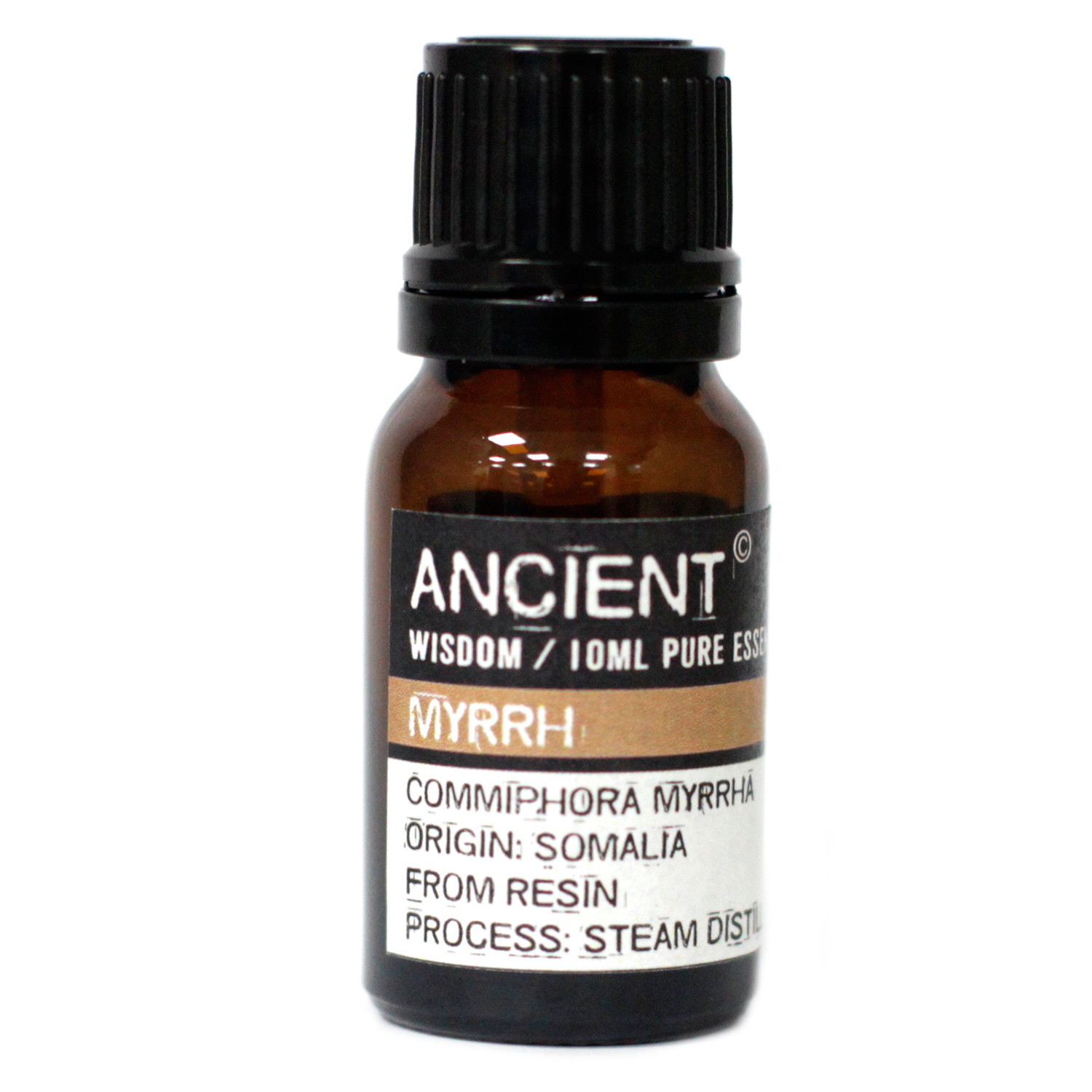












Reviews
There are no reviews yet.